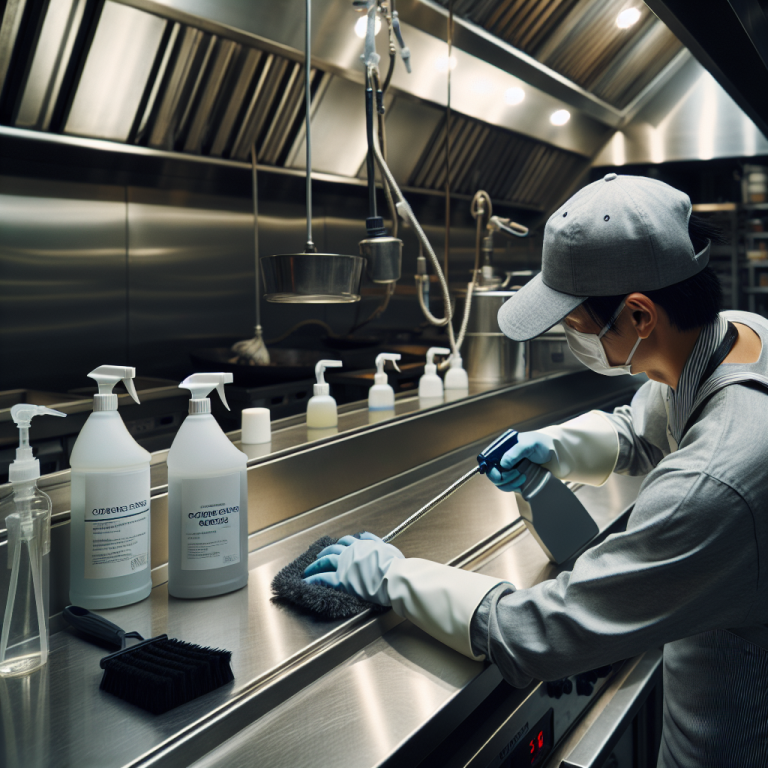Essential Hood Cleaning Safety Tips for Preventing Accidents and Injuries
Why Hood Cleaning Safety Matters
In the bustling world of restaurant operations, safety is paramount, especially when it involves hood cleaning. Many restaurant owners in New Jersey, particularly in busy areas like Toms River NJ, often focus on the quality of their menu or customer service. However, a significant yet overlooked aspect is ensuring that the commercial kitchen hood cleaning is performed safely to prevent accidents and injuries.
Proper exhaust hood cleaning not only mitigates fire hazards but also ensures a healthier working environment for your staff. In this guide, we delve into essential safety tips to keep your hood cleaning process smooth, safe, and efficient.
Preparing for a Safe Hood Cleaning
Before diving into the hood cleaning process, preparation is key. Ensuring the right setup can prevent most accidents. Here are some preparatory steps you should consider.
- Training: Ensure that your staff is adequately trained. They should be aware of potential hazards associated with restaurant hood cleaning.
- Personal Protective Equipment (PPE): Equip your team with necessary PPE such as gloves, goggles, and masks to protect from chemical exposure and hot surfaces.
- Equipment Check: Regularly inspect all cleaning equipment to ensure they are in top working condition.
- Clear the Area: Remove any unnecessary items or clutter around the cleaning area to avoid tripping hazards.
Proper Ventilation
Proper ventilation is crucial during commercial kitchen hood cleaning. The cleaning process often involves strong chemicals, and fumes can build up, posing a threat to the cleaning crew. Consider the following steps:
- Turn on Exhaust Fans: Ensure that all exhaust fans are operating to provide continuous airflow.
- Open Windows or Doors: Enhance ventilation by opening windows or doors where applicable.
- Use Low-VOC Cleaners: If possible, invest in cleaners with low volatile organic compounds (VOCs) to minimize harmful emissions.
Steps to Safe Hood Cleaning
Hood cleaning can be a demanding task, especially if neglected over time. Here are the steps you should follow for a safe and effective clean:
- Turn Off Power: Before starting, ensure that power to the hood system is completely turned off to prevent electric shocks.
- Remove Grease Buildup: Begin by carefully scraping off any significant grease buildup manually. Use caution to avoid physical strain.
- Use Proper Cleaning Agents: Utilize recommended degreasers specifically designed for hood cleaning.
- Follow Manufacturer Instructions: Adhere strictly to the instructions on cleaning product labels to avoid misuse.
- Rinse Thoroughly: After cleaning, thoroughly rinse all surfaces with water to remove any chemical residue.
Fire Safety Measures
The risk of fire is a concerning factor in restaurant hood cleaning. Implement these fire safety measures to safeguard your establishment:
- Install Fire Suppression Systems: Ensure fire suppression systems are in place and well-maintained within the hood and ductwork.
- Perform Regular Inspections: Hire certified professionals for routine inspections of your whole kitchen exhaust system.
- Maintain Escape Routes: Clearly mark and maintain paths to exits in case of an emergency.
Post-Cleaning Safety Practices
Once the exhaust hood cleaning is complete, don’t overlook the importance of post-cleaning safety checks:
- Review the Work Area: Ensure all cleaning materials and tools are stored safely away from the cooking area.
- Check Equipment Functionality: Confirm that the hood and all its components are functioning correctly before restoring power.
- Plan Regular Cleanings: Establish a consistent schedule for hood cleaning to prevent excessive grease accumulation.
- Log Maintenance Records: Keep detailed records of each cleaning session for future reference and compliance purposes.
Conclusion
Maintaining a safe and functional commercial kitchen involves diligent attention to hood cleaning practices. By prioritizing the safety of your staff and workspace, you not only comply with regulations but also foster a productive and secure environment. Consider enlisting professional services like Jersey Hood Cleaning in Toms River NJ, for expert guidance and restaurant hood cleaning solutions tailored to your needs.







